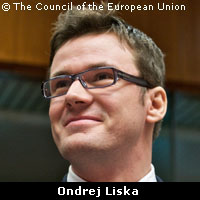Research investments key to European economy growth, ministers say
'Higher, more effective and efficient investments in education, research and innovation are a key factor for the sustainable long-term growth of a competitive European economy and should remain a high priority, also in the context of the current global economic downturn,' reads one of the recommendations adopted by EU research ministers at the Competitiveness Council meeting in Brussels, Belgium on 5 and 6 March. In the recommendation, the ministers also highlight the importance of reaching the goal of investing 3% of gross domestic product (GDP) in research and development (R&D), and call on Member States to encourage the private sector to invest more in research. 'In the present situation, the consensus on higher and more effective research and development investments that we have reached here today with my colleagues from the other Member States is an important signal for all citizens,' said Ondrej Liska, the Czech Minister of Education, Youth and Sports who was chairing the meeting. 'Innovative companies and highly educated mobile scientists are an adequate strategy for the EU to combat the recession.' Elsewhere in the recommendations, the ministers call on Member States to encourage universities, research institutes and industry to 'step up their cooperation'; the European Institute for Innovation and Technology (EIT) will play a key role in achieving this goal. According to the ministers, the role of frontier research needs to be 'reinforced'. Furthermore, as the ministers noted, the review of the structures and mechanisms of the European Research Council (ERC) should be a priority. The Ljubljana process, which is designed to make the European Research Area (ERA) a reality, is the subject of another recommendation, in which both Member States and Commission are called on to ensure effective ERA governance and implement the five ERA initiatives (covering research infrastructures, joint programming, researchers' careers, international cooperation and knowledge sharing). Concerning research infrastructures, the ministers call for negotiations on the proposed legal framework for European research infrastructures to be completed 'as soon as possible'. 'It is also necessary to consider the research infrastructure investments with respect to their contribution to Europe's long-term competitiveness, as confirmed by the EU heads of state and government,' commented Minister Liska. Improving researchers' career prospects is a key pillar of European research policy, and the ministers state that measures are needed to improve training, enhance researchers' working conditions and ensure a balanced circulation of scientific talent. 'In addition, interest in research and innovation needs to be stimulated in society, particularly among the young,' the ministers underline. Other points adopted by ministers include the need to address the research and innovation needs of small and medium-sized enterprises (SMEs), and the importance of improving the coordination of national research programmes. In total, the ministers unanimously adopted over 30 recommendations and key messages on how Europe should respond to the current economic downturn. These will now be sent for endorsement by the next European Council which will be held in Brussels on 19 and 20 March.
Countries
Czechia



